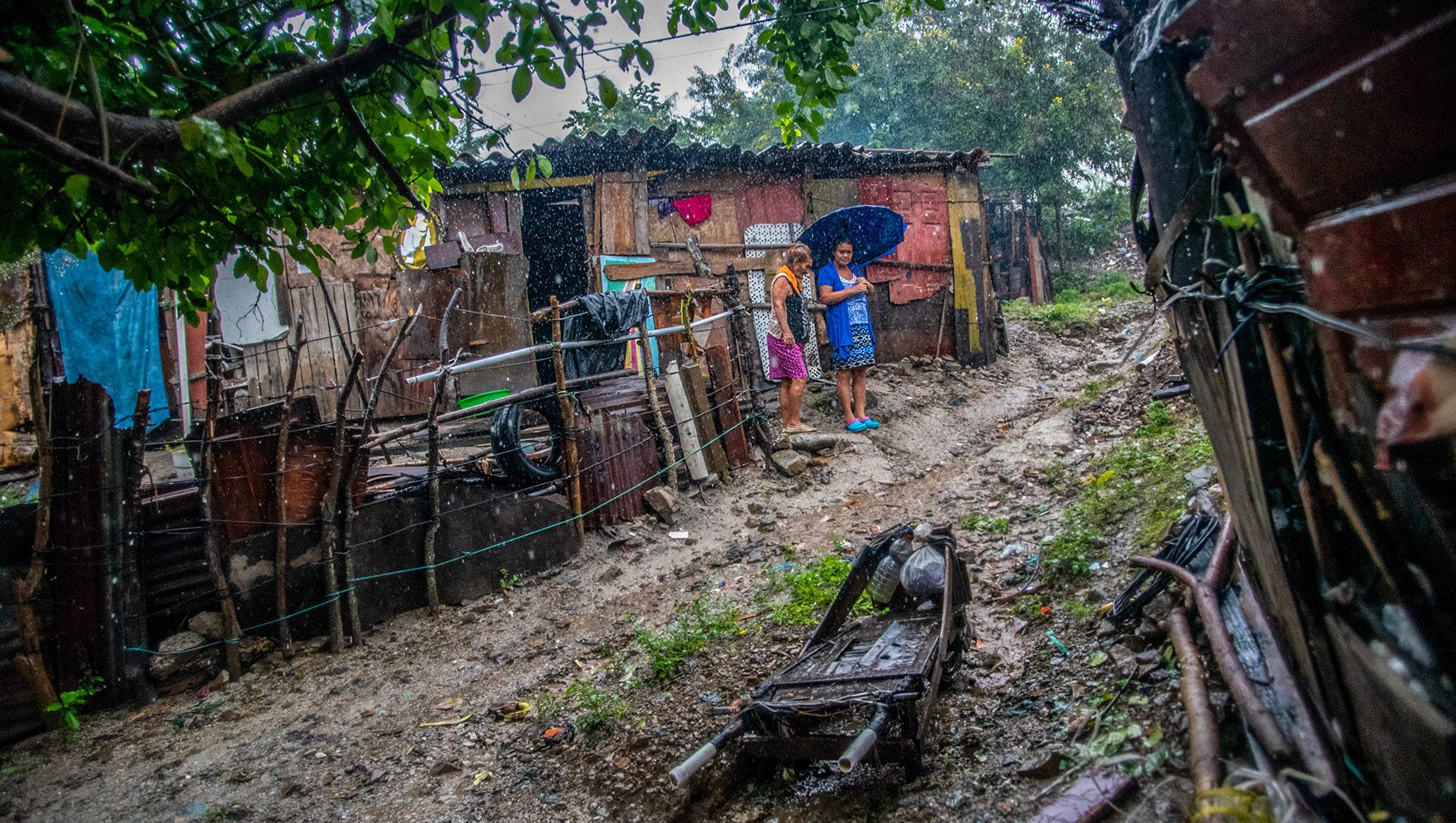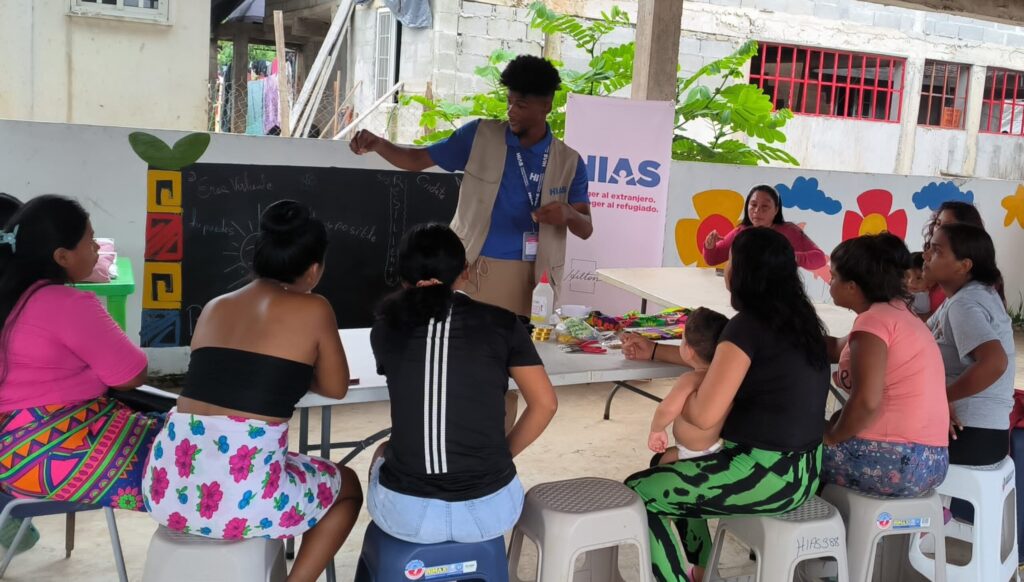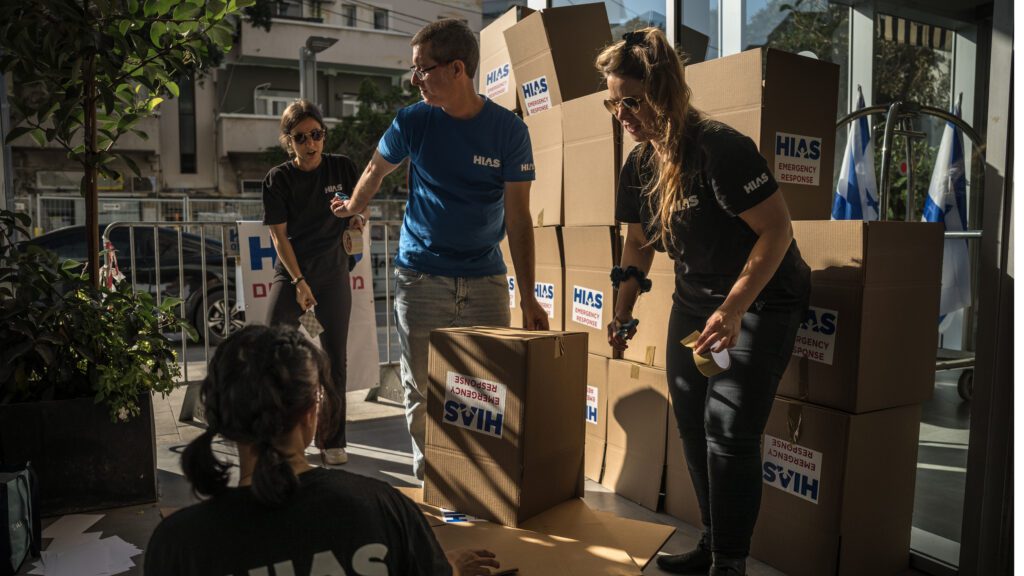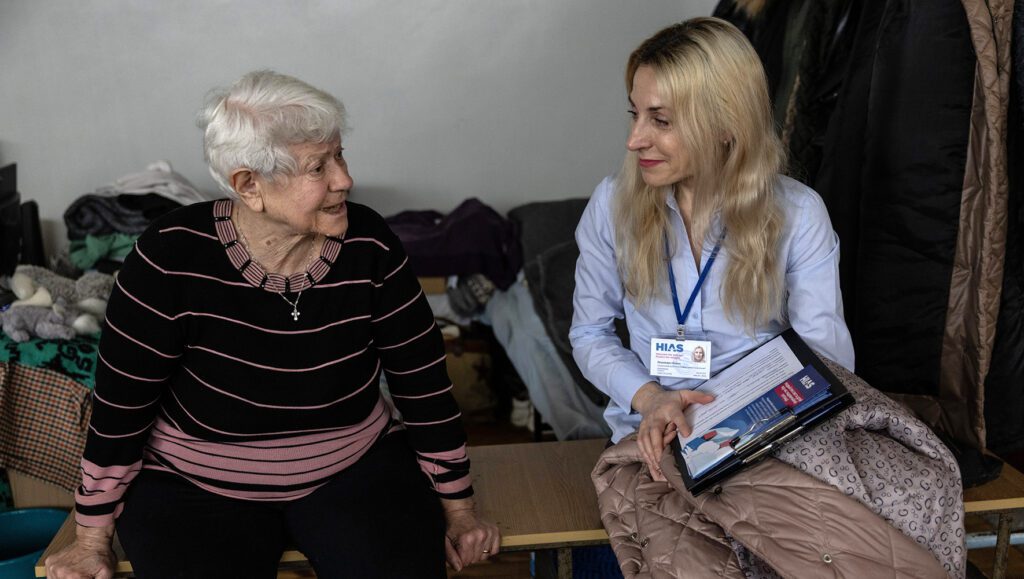
In the Valle del Sula, in Honduras, many people have experienced displacement, endemic violence, and natural disasters.
This area, in the north of Honduras close to the border with Guatemala, has struggled for decades with clashes between criminal groups. So when two devastating hurricanes – Eta and Iota – struck in 2020 in the Valle del Sula, the effect was particularly severe. Thousands of people lost everything, and many became displaced for a second or third time.
In the Valle del Sula, disasters have had consequences beyond material concerns — they also have negative impacts on residents’ mental health. For those who are struggling, it can be hard to know where to turn.
“In Honduras, accessing mental health services can be very challenging,” said Ileana Merino, program coordinator for HIAS Honduras. “So in a context where the state is unable to provide this for people, the community can play a fundamental role.”
That’s where EMPODER came in. A community-based intervention implemented by HIAS Honduras, USAID, and, FUNADEH, a local organization, EMPODER provided mental health support, gender-based violence (GBV) prevention, and cash and voucher assistance (CVA) to over 17,500 people in San Pedro Sula and Choloma between 2021 and 2023.
The project targeted Hondurans who were internally displaced, who were impacted by natural disasters such as hurricanes Eta and Iota, who had experiences of forced return from other countries, and who experienced violence, particularly GBV.

EMPODER proved to be particularly innovative in improving mental health outcomes. HIAS Honduras worked closely with FUNADEH to identify 30 people who were already leaders or well-known within their communities to become mental health ambassadors.
Participants received training in cognitive behavioral therapy and mindfulness techniques to provide people with practical tools to improve their psychological resilience and their capacity to cope with external stressors, without having to unearth traumatic events.
The ambassadors oversaw group sessions where people could speak about their experiences in a safe environment and carry out practical exercises. They also received training on how to identify situations of GBV, in order to connect GBV survivors with specialized services provided by the government and other organizations.
In addition to training the ambassadors, HIAS taught over 100 members of the local government techniques to provide psychological support to people in distress in their communities.
“Community ambassadors have a better capacity to intervene in situations that put the mental health of people in their communities at risk, than external service providers,” said Ely Melendéz, country director for HIAS Honduras. “This is due to the already existing trust between ambassadors and community members.”
Community members noted important improvements in their mental health after participating in the program. 72.3% reported an increase in their overall well-being after completing the group psychology sessions run by the ambassadors, while 95.1% of participants with caring duties reported feeling more well-equipped to deal with problems after taking part in EMPODER.
“The most important thing for us was to give communities the tools to be autonomous and to determine their own well-being,” said Merino. “The ambassadors were teaching things that other people could reproduce in their personal contexts. This gives people a sense that they can take back control of their lives.”


